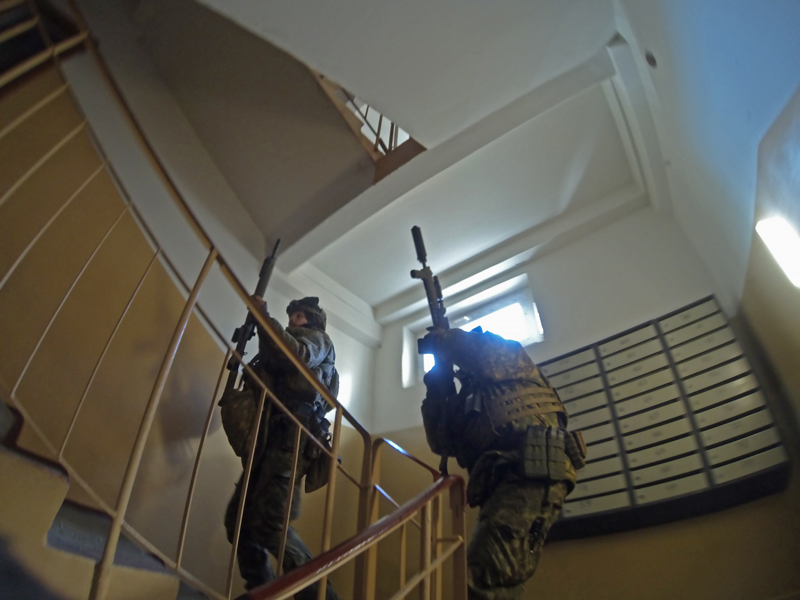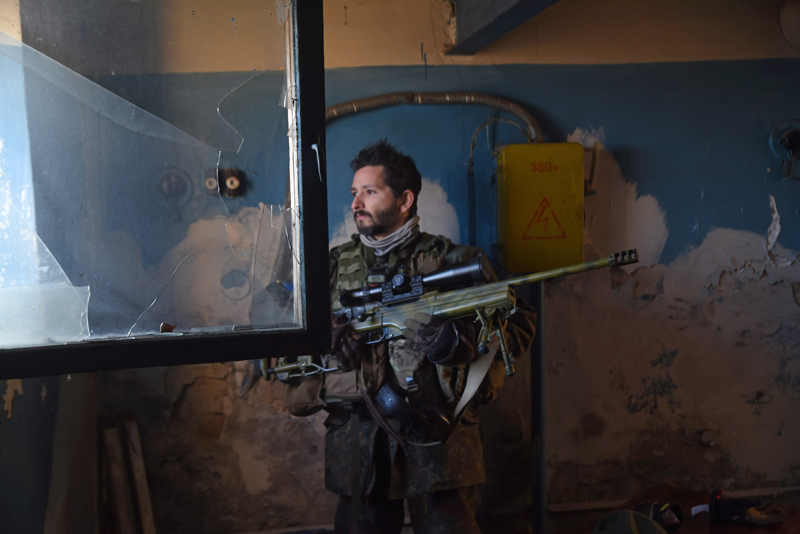
Huddled among leafless trees, they were essentially the point men in the defence of a village on the approaches to the strategic city of Mariupol. Russian troops and tanks were staging a measured advance across the fallow fields on three sides.
Mud was about all that was keeping the heavy armour, visible a kilometre away, from overrunning their position in a 20-metre-deep wood that ran in an angular L-shape, its short leg jutting northeastward toward the enemy.
Fresh out of blankets, their bodies warm in the cool morning air, Wali—the nom de guerre of a Montreal-born veteran volunteering in Ukraine—and his comrade-in-arms Shadow, were lying low. The two Ukrainians were not.
“Morning is the worst time to be detected, so we had to be extra careful.”
They had doffed their cover, left the trench and were now standing among the trees smoking. As a sniper, Wali knew they were more vulnerable now, in the morning, than at virtually any other time of day. The Russians, whose poor soldiering and equipment have been noteworthy in this war, had “very good” thermal imagery gear.
The equipment, which operates off heat signatures, has its quirks. Wali knows them well.
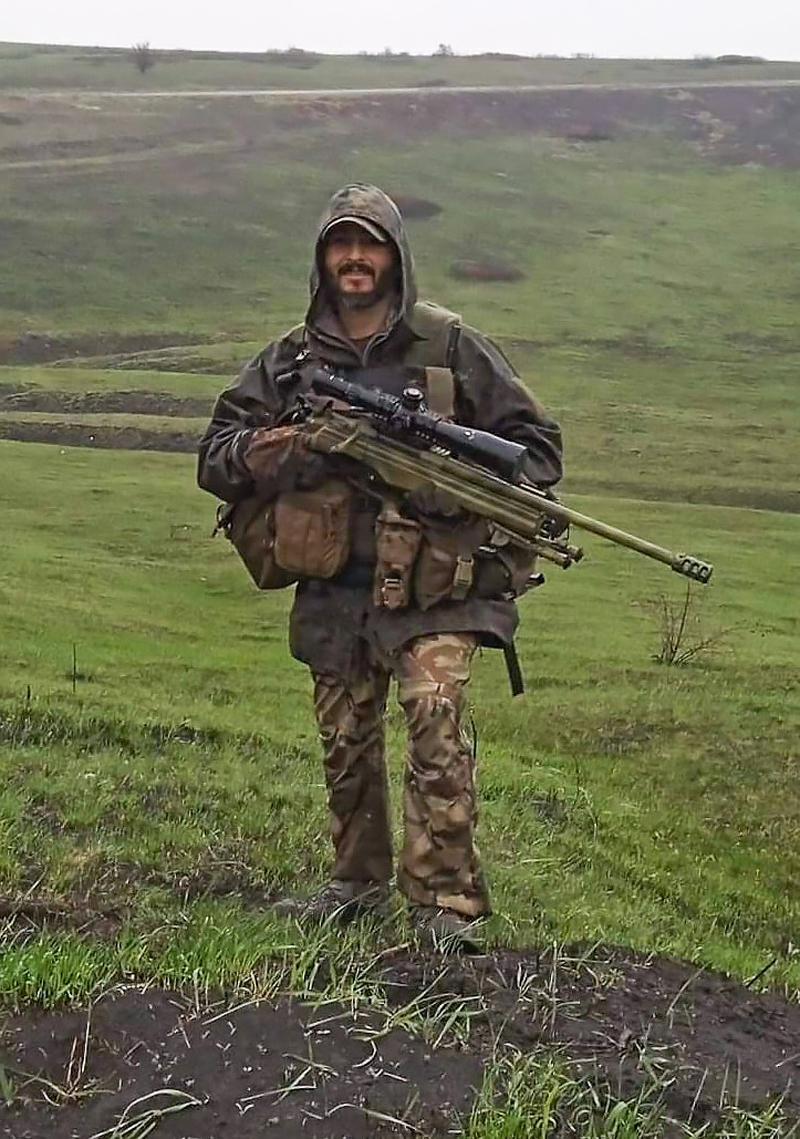
“But in the morning, it is easier because everything (except people) has had time to cool down, especially when it’s cold at this time of the year (early spring).”
Wali was behind a mound, busy with the ritual of “camming up,” applying greasy camouflage to his face. He offhandedly told the two Ukrainians to get back in their trench. They didn’t. He asked them where the tanks were. They pointed, then moved toward the edge of the trees for a better view.
Now they had his full attention. “Stop!” he urged them. “Get back!”
They backed away, but continued smoking—two warm bodies with lit cigarettes standing in what most people would consider a safe stand of trees out of enemy view. They were basking in a false sense of security.
“As a soldier, I experienced this a lot, especially in Kurdistan: we tend to feel safer when we are in a group,” Wali said. “In modern warfare, you never stay in groups. That’s very dangerous.
“You attract fire and, when something happens, you take more casualties.”
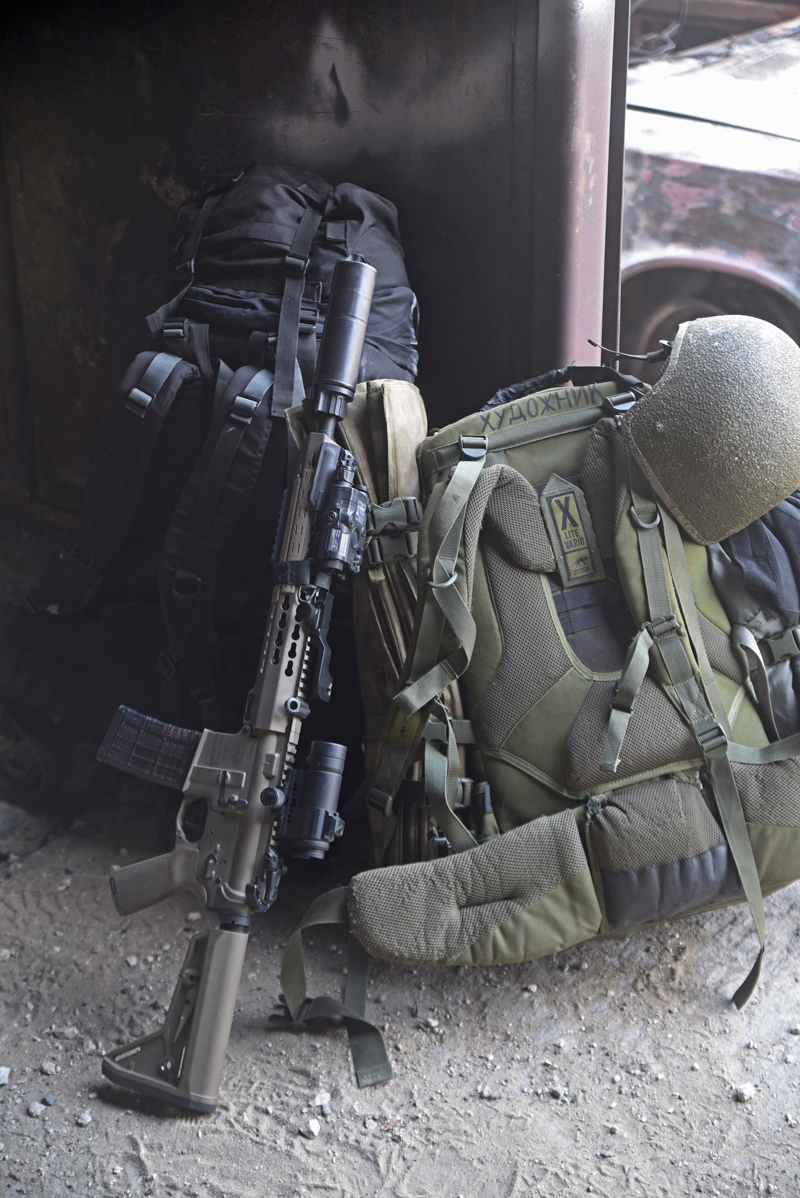
Instinctively—reflexively—Wali moved. There were 15 metres between him and the Ukrainians. He was under his camo net, maintaining a low profile, peering through his binoculars, trying to determine the exact location of the Russian armour.
“Twenty seconds after I lowered my binos, there was this huge explosion—huge explosion—on my right. Very violent. All of my body [reacted]. You could feel the violence. I call it ‘the wind of death.’ It’s hard to describe but you can feel how bad war is when you are in this type of [circumstance]. The explosion is not just an explosion; the smell and just the feel of it, there is something weird about it.”
Shrapnel zipped past his face, less than an arm’s length away. It looked like lasers. Having been engaged by Russian tanks numerous times since joining the fight days after Russia invaded Ukraine on Feb. 24, he knew this was no ordinary artillery round.
Armed with a Javelin anti-tank weapon, his first thought was to pinpoint and take out the tank that killed his colleagues.
Shadow was shaken, but unscathed. Deafened in his right ear, Wali put more trees between him and the enemy and made his way over to the Ukrainians. The area around them was filled with fire, smoke and debris. It reeked of death.
He came upon one of the Ukrainians lying beside a tree that had been shattered by the blast. Both his legs and one arm were gone; his uniform was shredded and his body was a mass of blood. Wali had seen the like of it before. The man was dead.
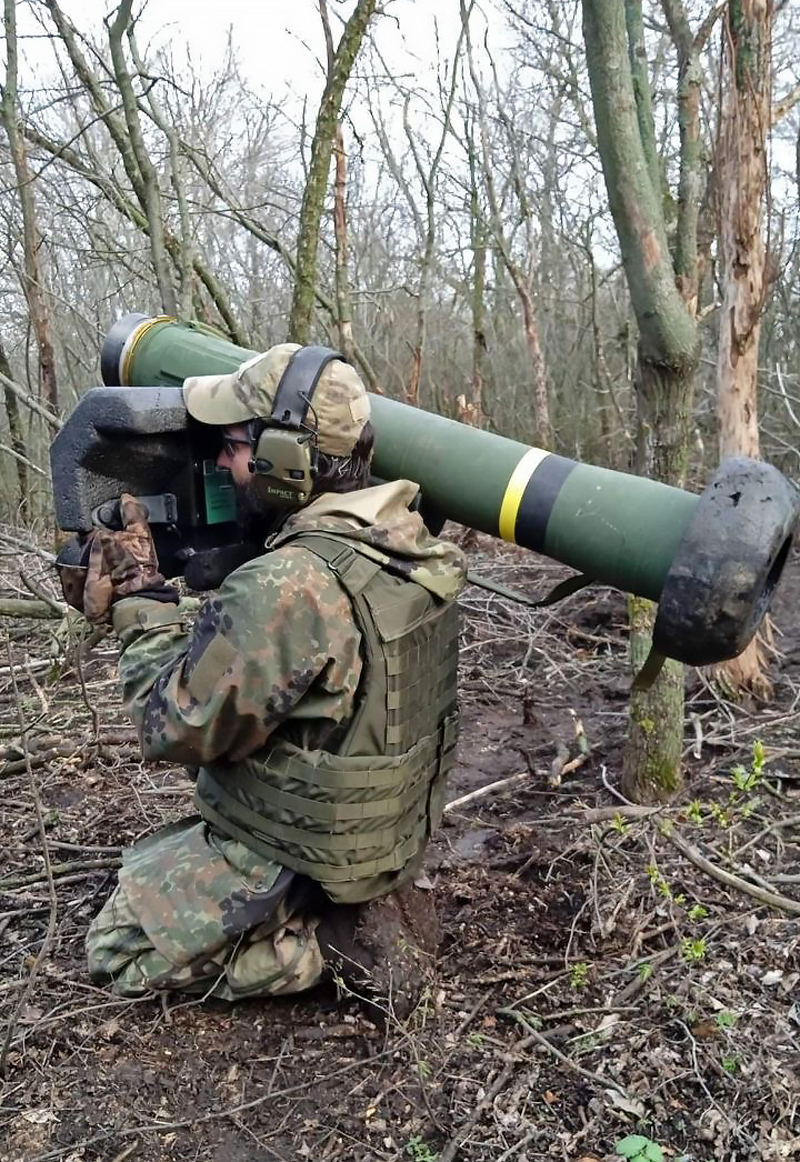
The Ukrainian gasped, then 10 seconds later, he “deflated” and his body went limp.
Armed with a Javelin anti-tank weapon that he’d taught himself to use by downloading the manual, playing video games and watching YouTube videos, Wali’s first thought was to pinpoint and take out the tank that killed his colleagues.
Shadow had other ideas. “Let’s get the fuck out of here,” he said.
War fighting, stressed Wali, is not like in most movies. More often than not, combatants make pragmatic decisions with self-preservation, not heroics, in mind.
A veteran of two tours with Canadian troops in Afghanistan, and months operating alongside Kurdish fighters in Iraq, Wali said he was calm and thinking clearly in the moment, in spite of the circumstances.
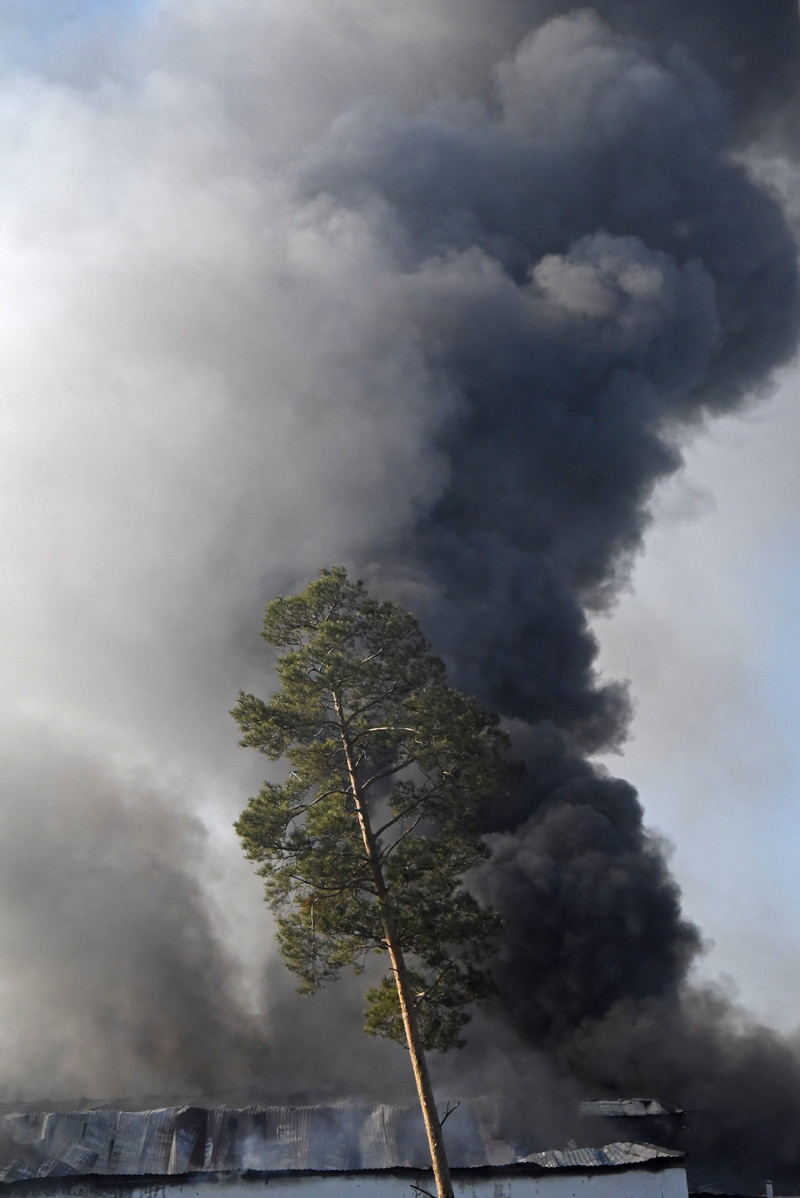
“When you don’t have the initiative in war, you pull back,” he explains. “If you can hold the ground, you do it—and we did, in other situations, even if we didn’t have the initiative. But in that place—just a trench in a wood—it was not the smart thing to do. There’s a saying in war, ‘run, run, run so you can fight another day.’
“That’s pretty much the smartest thing we could do.”
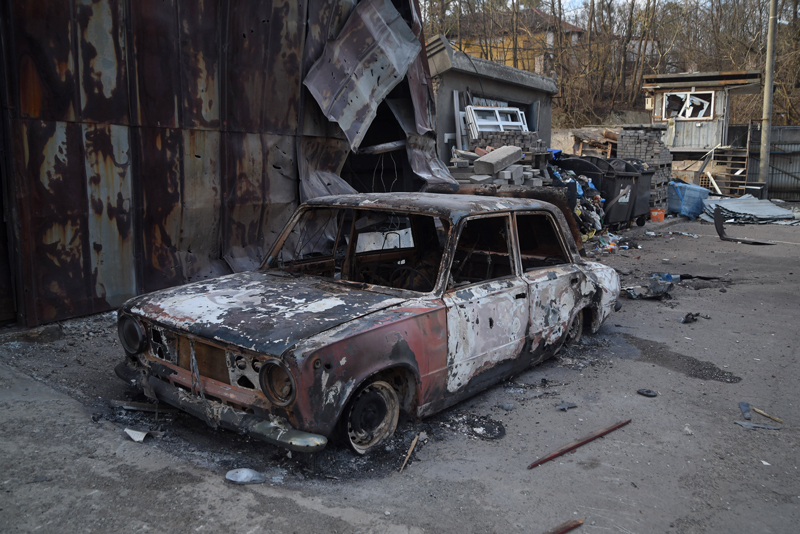
Suddenly, Wali had a change of heart, pulled up, and told Shadow he couldn’t leave his rifle behind. He crawled back into the hot zone. The tank was still firing.
“It looked like this perfectly staged war movie scene. It was perfect, you know—missing legs, the blood, the people inside the smoke, the forest around them. It looked like Band of Brothers in Bastogne, without the snow.”
He’d had a hard time believing those mock-ups when he was in training with the Canadian Army. They were just too perfect. But time and again, through various circumstances over multiple deployments, they proved accurate. And this was as real as it gets.
Showing their position on Google Earth, Wali described how he made his way back on his belly into the target area, confirmed both Ukrainians were dead, then grabbed his rifle and waited. The Javelin was beyond reach. He sheltered and counted the seconds between the randomly aimed rounds. He was showered with dirt.
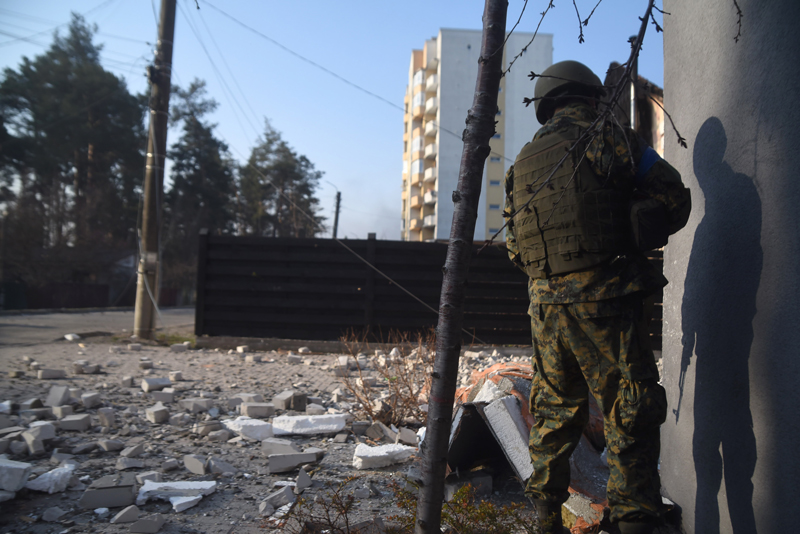
“So it was pretty useless, but it was like taking back my sword.”
He waited until another pause, then scrambled away. He and Shadow got back to the village patrol base without a visible scratch, though Wali was deaf in his right ear, and probably concussed, for a week.
He was angry. A similar situation had occurred a few days earlier, without injuries. But Wali told the Ukrainians that they escaped with their lives only because they had followed basic drill while the others were careless.
One of the Ukrainians, a friend of one of the dead, insisted on seeing for himself what had become of his brothers-in-arms. Wali accompanied him partway, until the Ukrainian motioned for him to stay back, insisting that this was a mission—and not necessarily a smart one—that he had to complete on his own.
The soldier made it back, having confirmed for himself the deaths of the two Ukrainians and, using a hand-drawn map Wali had made for him, grabbing the Javelin in the process. Meanwhile, Russian tanks killed two more Ukrainians in the line, making it four dead in 60 minutes.
It was Wali’s last patrol in the Donbas region of eastern Ukraine. Russian troops now control Mariupol, at a high cost in civilian, Ukrainian military and Russian lives.“At that point I called my wife and I realized how much risk I was taking. This type of situation had happened before—being engaged by tanks; wounded all around me. I was like ‘man, I’m rolling the dice every day.’”
Wali rotated out and eventually returned home to his wife and 14-month-old son, relieved that his toddler remembered him. He is now busy jockeying client requests in his at-home computer programming job with little time to reflect.
The war seems so surrealistically far away, but the experience appears like water off the proverbial duck’s back for the Quebecer, who’s already hinting at a return to Ukraine should the fighting continue as predicted.
One of an estimated 550 Canadians to have volunteered to fight after the invasion—so many, they formed their own brigade—Wali joined a Ukrainian unit.
He says his killing mainly consisted of providing co-ordinates for artillery and drone strikes on Russian positions. Imparting numbers doesn’t sound exciting, but it can be mercilessly effective.
“You think you’re going to gloriously shoot the enemy when in fact you’re going to share co-ordinates and the artillery is going to do most of the job,” he said. “That’s modern warfare. Like it or not, that’s the way it is.
The war has exposed the Russian bear’s soft military underbelly.
“Afghanistan. Kurdistan. Everywhere—especially in Ukraine—artillery is the queen of the battlefield. The best way to kill Russians right now is to share co-ordinates.”
He said a lack of efficient communication—including a language barrier in his case—is the No. 1 drawback throughout Ukrainian operations.
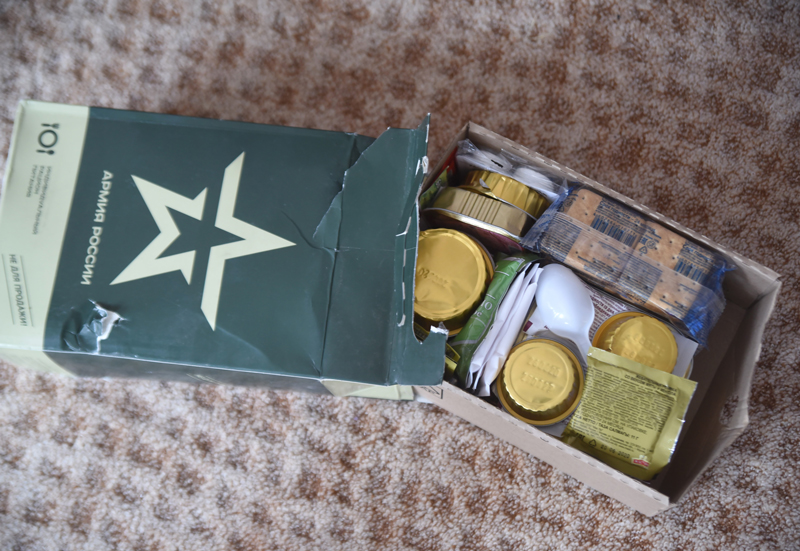
The war has exposed the Russian bear’s soft military underbelly, shown what simple drones, big and small, can do, and what ostensibly better equipment, bigger bombs and larger forces cannot.
The area in which Wali last fought—he doesn’t want the name published—resembles the hedgerows of Normandy, which forced D-Day invaders to fight field-by-field through much of the region.
The fields in Ukraine, however, are much bigger and muddier, and the “hedgerows” are actually long, 20- to 30-metre-deep groves, some with berms that pose a daunting challenge to tracked vehicles, especially in the soft, early spring ground. The situation is not unlike the winter snows that stalled Nazi Germany’s armoured advance across the Russian steppe in 1941-42. It is an overlooked detail that has contributed in no small part to the failures in the Russian operation.
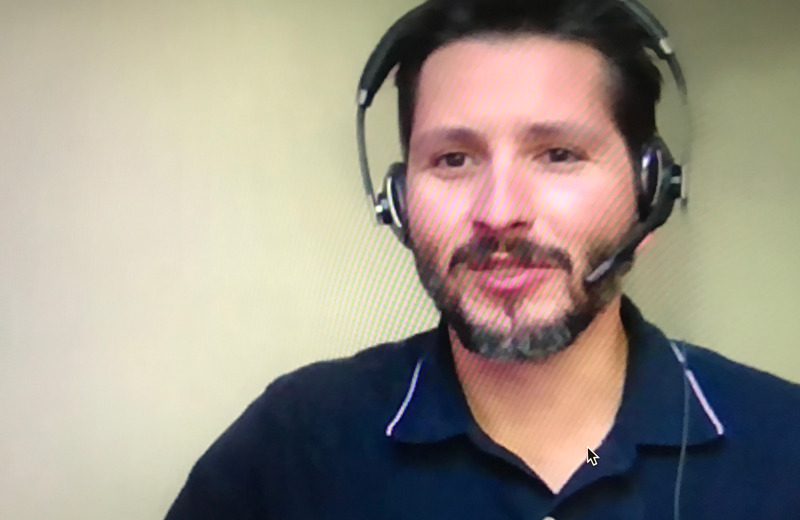
“A combination of poor low-level tactics, limited air cover, a lack of flexibility and a command approach which is prepared to reinforce failure and repeat mistakes has led to this high casualty rate,” said the U.K. defence ministry.
For now at least, Wali is embracing normal life again, grateful that he’s returned in one piece, cherishing the simple luxuries of living at home, where poutine is not Putin; a soft, warm bed has replaced the hard, cold ground; and the tender love of family has replaced the repartee of his brothers-in-arms.
Advertisement









